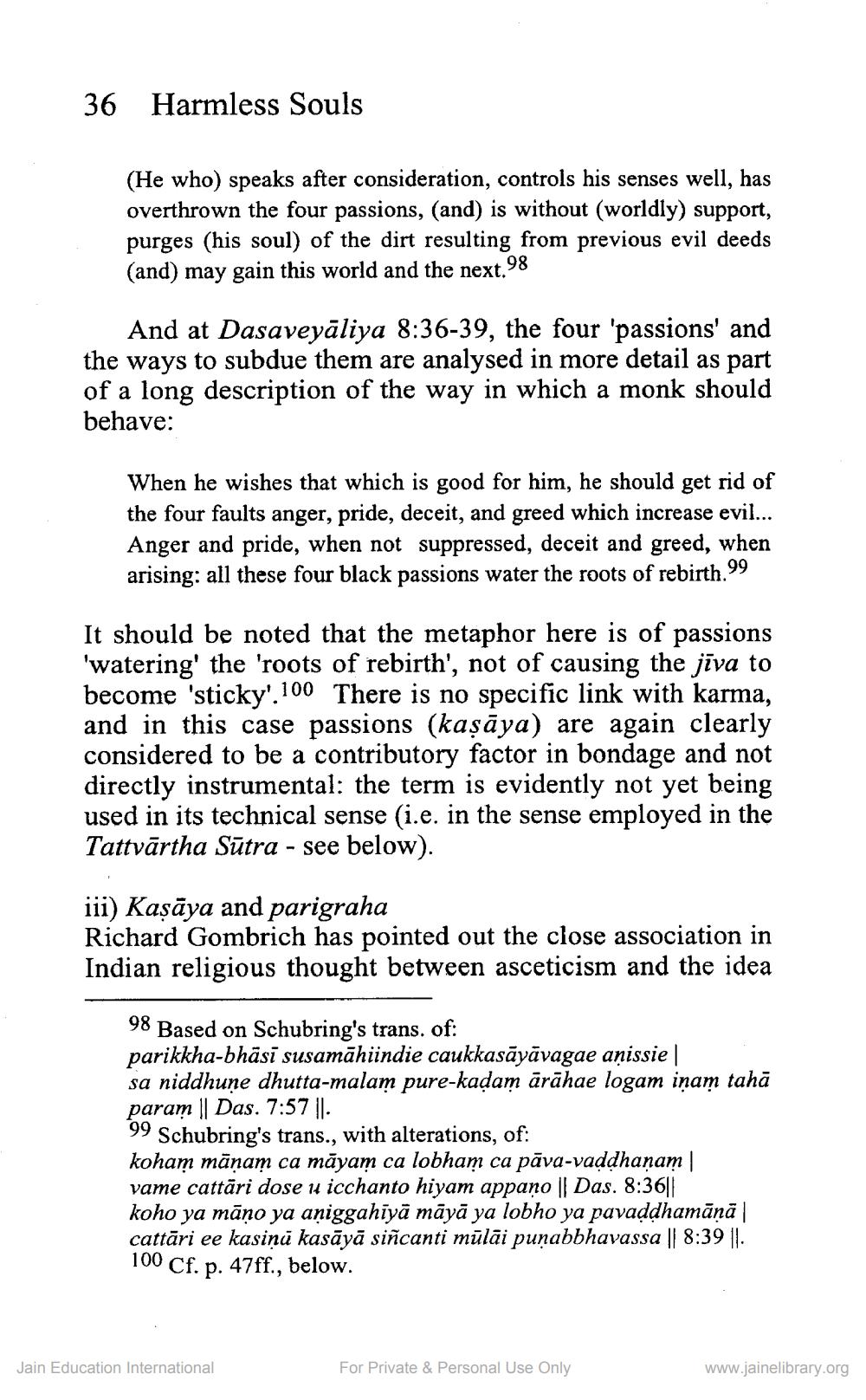________________
36 Harmless Souls
(He who) speaks after consideration, controls his senses well, has overthrown the four passions, (and) is without (worldly) support, purges (his soul) of the dirt resulting from previous evil deeds (and) may gain this world and the next.
98
And at Dasaveyāliya 8:36-39, the four 'passions' and the ways to subdue them are analysed in more detail as part of a long description of the way in which a monk should behave:
When he wishes that which is good for him, he should get rid of the four faults anger, pride, deceit, and greed which increase evil... Anger and pride, when not suppressed, deceit and greed, when arising: all these four black passions water the roots of rebirth.99
It should be noted that the metaphor here is of passions 'watering' the 'roots of rebirth', not of causing the jiva to become 'sticky'. 100 There is no specific link with karma, and in this case passions (kaṣāya) are again clearly considered to be a contributory factor in bondage and not directly instrumental: the term is evidently not yet being used in its technical sense (i.e. in the sense employed in the Tattvārtha Sutra - see below).
iii) Kaṣāya and parigraha
Richard Gombrich has pointed out the close association in Indian religious thought between asceticism and the idea
98
Based on Schubring's trans. of:
parikkha-bhāsī susamāhiindie caukkasāyāvagae aṇissie |
sa niddhune dhutta-malam pure-kaḍam ārāhae logam iņam tahā param | Das. 7:57 ||.
99
Schubring's trans., with alterations, of:
koham māṇam ca māyam ca lobham ca pāva-vaḍdhanam | vame cattări dose u icchanto hiyam appano || Das. 8:36|| koho ya māņo ya aṇiggahīyā māyā ya lobho ya pavaḍḍhamāṇā | cattāri ee kasiņā kasāyā siñcanti mūlāi puṇabbhavassa || 8:39 ||. Cf. p. 47ff., below.
100
Jain Education International
For Private & Personal Use Only
www.jainelibrary.org




